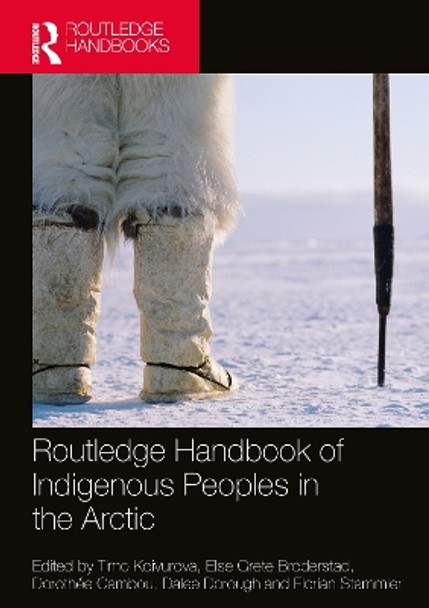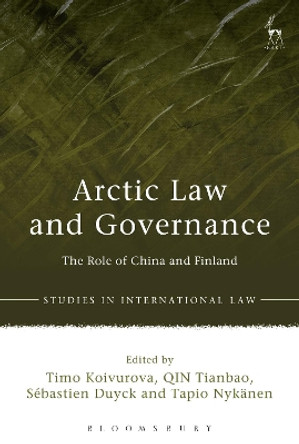Description
This handbook brings together the expertise of Indigenous and non-Indigenous scholars to offer a comprehensive overview of issues surrounding the well-being, self-determination and sustainability of Indigenous peoples in the Arctic.
Offering multidisciplinary insights from leading figures, this handbook highlights Indigenous challenges, approaches and solutions to pressing issues in Arctic regions, such as a warming climate and the loss of biodiversity. It furthers our understanding of the Arctic experience by analyzing how people not only survive but thrive in the planet's harshest climate through their innovation, ingenuity and agency to tackle rapidly changing environments and evolving political, social, economic and cultural conditions. The book is structured into three distinct parts that cover key topics in recent and future research with Indigenous Peoples in the Arctic. The first part examines the diversity of Indigenous peoples and their cultural expressions in the different Arctic states. It also focuses on the well-being of Indigenous peoples in the Arctic regions. The second part relates to the identities and livelihoods that Indigenous peoples in Arctic regions derive from the resources in their environments. This interconnection between resources and people's identities underscores their entitlements to use their lands and resources. The third and final part provides insights into the political involvement of Indigenous peoples from local all the way to the international level and their right to self-determination and some of the recent related topics in this field.
This book offers a novel contribution to Arctic studies, empowering Indigenous research for the future and rebuilding the image of Indigenous peoples as proactive participants, signaling their pivotal role in the co-production of knowledge. It will appeal to scholars and students of law, political sciences, geography, anthropology, Arctic studies and environmental studies, as well as policy-makers and professionals.
About the Author
Timo Koivurova is Research Professor and Director at the Arctic Centre, University of Lapland. He has a multidisciplinary specialisation in Arctic law and government but has also conducted broader research on global law.
Else Grete Broderstad is Professor in Indigenous Studies and coordinates the Indigenous Master Programme, UiT, The Arctic University of Norway. Her research areas include Indigenous rights, political participation, governance of the Circumpolar North, resource management and conflicting interests between Indigenous traditional livelihoods and large-scale industries.
Dorothee Cambou is Assistant Professor in sustainability science at the faculty of law, HELSUS, University of Helsinki. Her research focuses on the rights of Indigenous peoples and the governance of land and natural resources in the Arctic and the Global South.
Dalee Dorough, an Inuk from Alaska, is Senior Scholar and Special Advisor on Indigenous Peoples in the Arctic, UAA. Specializing in international Indigenous human rights, she holds a PhD in law bestowed by University of British Columbia in 2002 and Master of Arts in law and diplomacy from The Fletcher School in 1991.
Florian Stammler is Coordinator of Anthropology and Research Professor at the Arctic Centre, University of Lapland. His research is on nomadism, human-environment relations, Indigenous peoples and extractive industries. His publications include Reindeer Nomads Meet the Market and Good to Eat, Good to Live With.
Book Information
ISBN 9780367645656
Author Timo Koivurova
Format Paperback
Page Count 380
Imprint Routledge
Publisher Taylor & Francis Ltd
Weight(grams) 1520g





